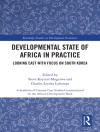This book provides a new translation of all the surviving portions of the description of India written by Megasthenes in about 310 BCE, the fullest account of Indian geography, history and customs available to the classical world. The Indica was a pioneering work of ethnography that exemplified a new direction in Hellenistic writing; India was little-known to the Greeks before the expedition of Alexander the Great in 326–325 BCE, and Megasthenes, who resided as an ambassador in the Maurya capital Pataliputra for some time, provided the classical world with most of what it knew about India.
Megasthenes’ book, which became a classic in antiquity, now survives only in fragments preserved in other Greek and Latin authors. Stoneman’s work offers a reliable and accessible version of all the writings that can plausibly be ascribed to Megasthenes. His subject ranges from detailed accounts of social structure and the royal household, to descriptions of elephant hunting and Indian philosophical ideas. His book is the only written source contemporary with the Maurya kingdom of Candragupta, since writing was not in use in India at this date. This translation provides a path to clearer understanding of Greek ethnography and a valuable resource on Indian history.
The book will be of value not only to classical scholars with an interest in Hellenistic history and cultural attitudes, and to their students, but also to scholars working on the early history of India, who have had to rely (unless they are also Greek scholars) on scattered and dated collections of evidence.












